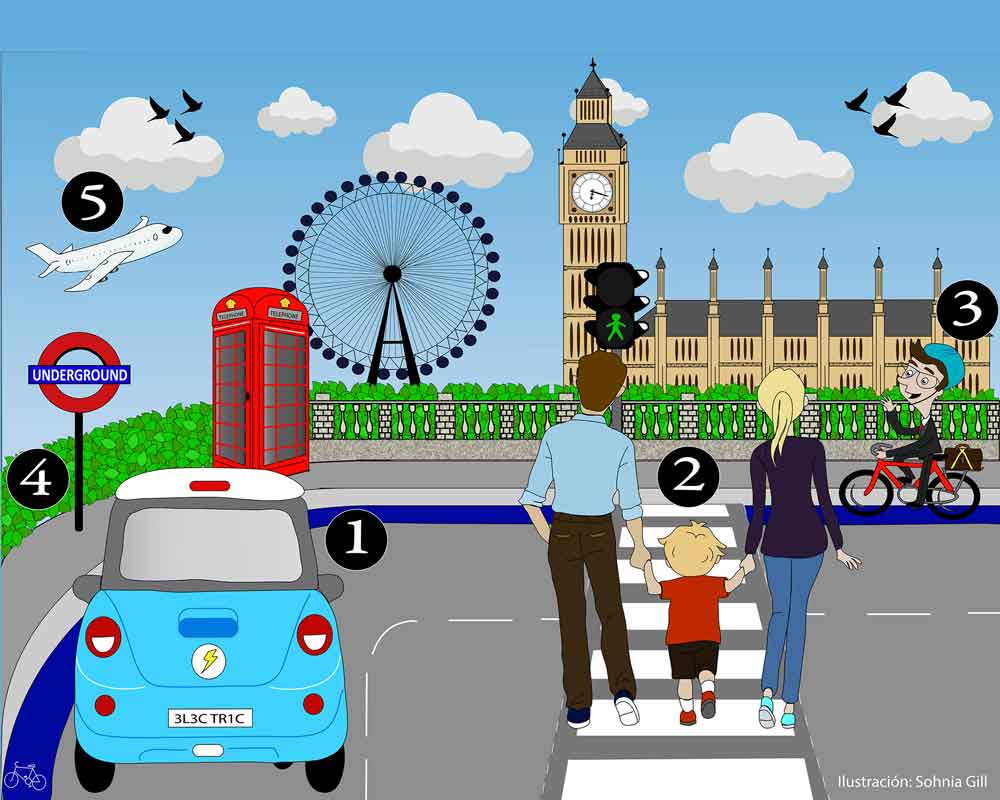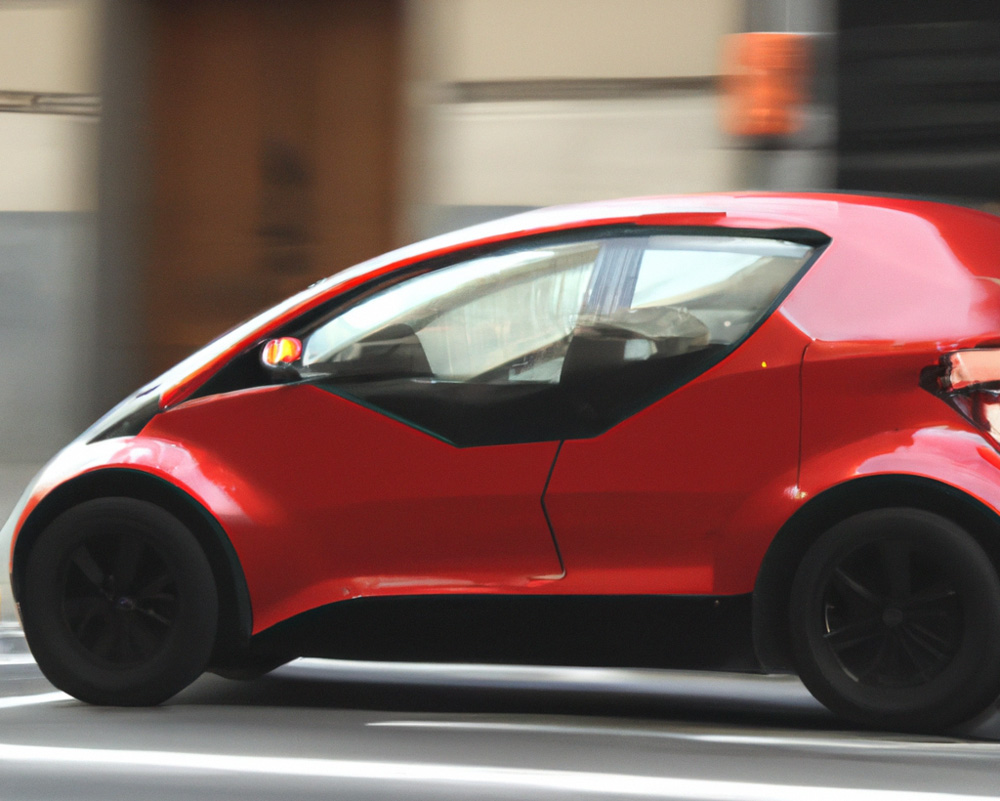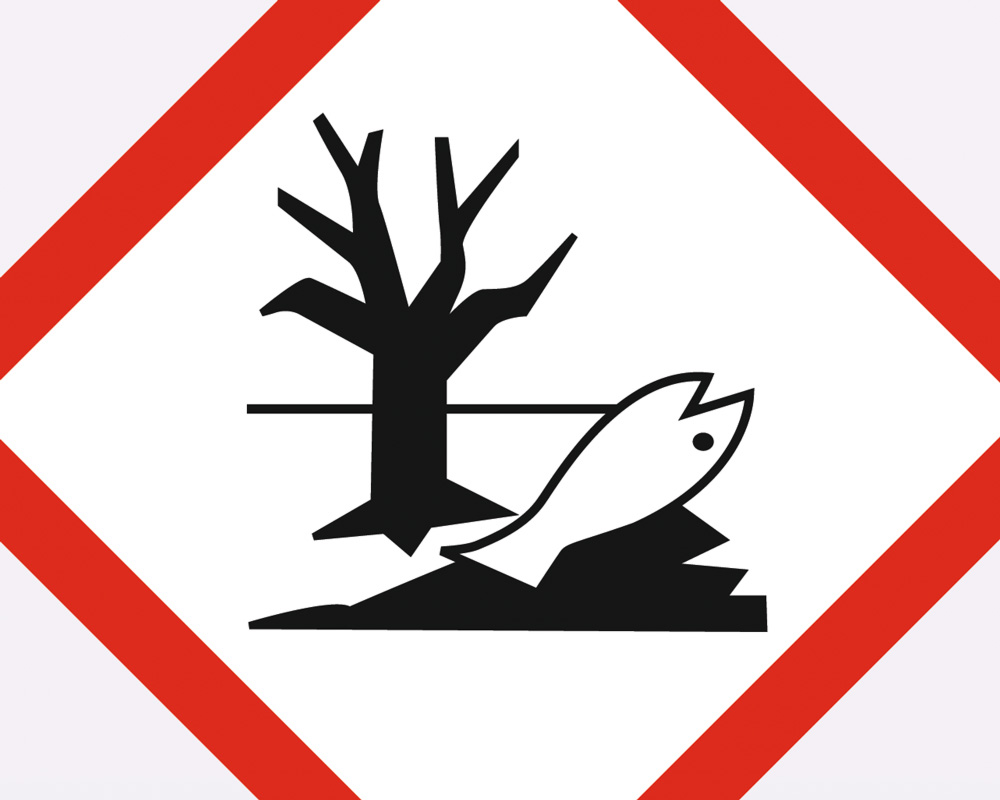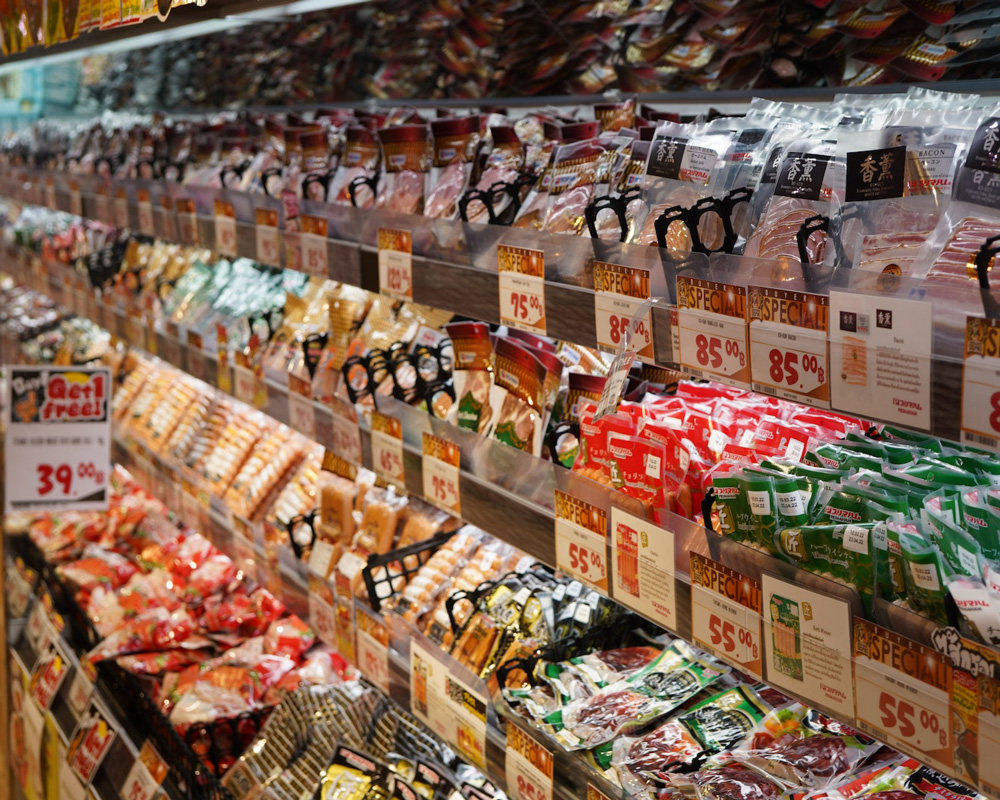1. Es necesario sustituir los coches diésel y de gasolina por eléctricos. Esto significa que debería fabricarse una variedad de modelos para satisfacer a todos los tipos de consumidores. Además, la duración de la batería necesita ser más prolongada y las estaciones de carga deberían estar más extendidas.
1. Replace diesel and petrol engined cars with electric cars. This means that ranges of models need to be manufactured to suit all types of consumers. In addition, battery life needs to be lengthened and charging stations should be more widespread.
2. Hay que fomentar otros modos de transporte, como caminar. Esto permitiría que reducir el número de coches en las calles y disminuir el hacinamiento en las redes de metro.
2. Other modes of travel need to be encouraged, such as walking. This allows the number of cars on the road and overcrowding on metro lines to be significantly reduced.
3. La bicicleta debe ser fuertemente estimulada como medio alternativo de transporte. La congestión en las calles de Londres disminuiría sustancialmente y el sistema de transporte público de masas estaría menos atestado. El número de carriles bici debería ser incrementado para hacer el ciclismo más seguro, y también se debería invertir en vías específicas para separar a los ciclistas de los automovilistas. Esto a su vez hará que Londres sea más saludable, más sostenible y en general una ciudad mejor para vivir y trabajar, así como visitar.
3. Cycling as an alternative means of travel should be strongly recommended. Congestion on the roads of London would substantially decrease and the mass public transport system will be less crowded. Therefore, the number of bike lanes should be increased to make cycling safer and the government should invest in cycle superhighways that separate cyclists from motorists. This will in turn make London a healthier, more sustainable and overall a better city to live and work in, as well as visit.
4. El transporte público es crucial, puesto que es el principal medio de transporte para la mitad de la población. Para minimizar el hacinamiento en las horas punta en la red de metro, es necesario crear más líneas y estaciones, construir trenes más largos y disminuir los precios de las tarifas para estimular el viaje fuera de las horas punta. Además, las estaciones de metro deberían ser totalmente accesibles para usuarios con algún tipo de discapacidad. Lo mismo se puede decir de los taxis, autobuses, tranvías y embarcaderos. Estas iniciativas, a su vez, reducirán el número de emisiones de gases tóxicos liberados en la atmósfera.
4. Public transport is crucial and is regarded as the main means of travel for many commuters. To minimize overcrowding in peak hours on underground stations more metro lines need to be created, longer trains should be constructed and fare prices should decrease to encourage travel outside of the peak time period. In addition, underground stations should ensure they are fully accessible by establishing step free access across all train lines. The same should be done for taxis, buses, overground stations, trams and piers. These initiatives in turn will reduce the number of toxic engine emissions released into the atmosphere.
5. Con un número de vuelos que se duplicará en los próximos 40 años, es necesario realizar cambios en el transporte aéreo para garantizar un futuro sostenible. Los niveles de ruido de las aeronaves deben reducirse y es necesario producir combustible sostenible para reducir sus emisiones de carbono. Los aviones deben ser más limpios para mejorar la calidad general del aire y reducir las emisiones de gases de efecto invernadero.
5. With the number of flights nearly doubling over the next 40 years changes need to be made to aircrafts to ensure a sustainable future. Noise levels of aircrafts need to be reduced and sustainable fuel needs to be implemented to cut carbon emissions. In general, aircrafts need to be cleaner to improve overall air quality.
Texto e ilustración: Sohnia Gill






Deja tu comentario
Debe iniciar sesión para escribir un comentario.